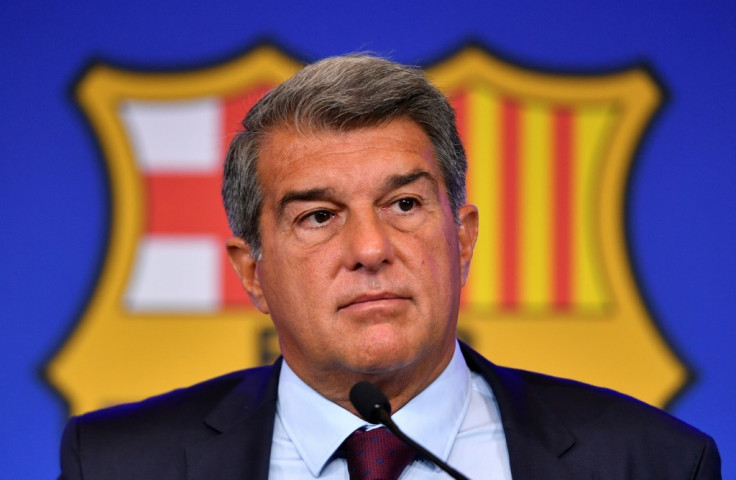FC Barcelona In Danger Of Champions League Expulsion Over Negreira Case Bribery Charges
The club is said to have paid a technical official approximately €7 million which has yet to be justified.

Months after the scandal first hit the headlines, FC Barcelona has been formally charged with bribery in the "Caso Negreira". For those unaware, the club has been found to have paid former vice-president of the Technical Committee of Referees (CTA) Jose Maria Enriquez Negreira around €7 million in a relationship that lasted several years.
The Spanish Public Prosecutor's Office under Judge Joaquin Aguirre, has confirmed that there has been enough evidence to formally charge the La Liga giants and Negreira himself. Other notable names who are part of the lawsuit are former Barcelona Presidents Josep Maria Bartomeu and Sandro Rosell. On Negreira's side, his son Javier Enriquez Romero is also accused of being part of the entire operation.
While systemic corruption on the part of Barcelona will be much harder to prove, the judge has ruled that there is enough evidence to pursue a bribery case. Under Spanish law, bribery is defined as the act of paying a member of a public organisation.
Barcelona have been charged with suspected bribery for payments worth more than €7 million made to companies linked to the former vice president of the refereeing committee, José María Enríquez Negreira, judicial sources have told Spanish news agency EFE. pic.twitter.com/vl3RrYocc9
— ESPN FC (@ESPNFC) September 28, 2023
Why is Negreira considered to be a public official?
Technically speaking, the Royal Spanish Football Federation (RFEF) is actually a private organisation. The Spanish government does not have direct jurisdiction over the football governing body, but according to the ruling, it fulfils the criteria of being a public organisation as far as the case is concerned.
First, the RFEF was created in the general public interest. The federation also has its own legal responsibility, and it is under the supervision of the Ministry for Culture and Sport.
Due to these factors, Negreira can be considered to be a public official during the period of time in question, when he was the vice president of the Technical Committee of Referees. Anyone who has authority to carry out public functions is therefore considered a public official.
What were the payments for?
For those unfamiliar with the case, Negreira claims that he was paid by FC Barcelona to provide a consultancy service from 2001 to 2018 through his company, Dasnil 95. He said that all he did was provide the club reports on refereeing actions and decisions during their matches, in a bid to ensure that they were receiving fair treatment. However, no evidence of these so-called reports have been provided thus far.
Naturally, speculations are rife that the payments were in fact to bribe referees into making decisions that favour Barcelona. While this matter has yet to be proven, the case is strong enough based on the existence of the payments themselves, which were uncovered during a tax investigation. Paying a public official is considered to be bribery, regardless if the payments have not yet proven to have resulted in "favours".
Previous reports also stated that during his tenure as a technical official, Negreira would habitually give luxurious gifts to fellow referees. Some of the items that his colleagues received from him reportedly include gourmet meals at Barcelona's top restaurants, expensive hams, alcohol, sweets, lottery tickets, referee cards, and football tickets.
Former Barcelona presidents in hot water
While this case has now fallen on the lap of current FC Barcelona president Joan Laporta, his predecessor Josep Maria Bartomeu is a key figure in the case. The latter reportedly received a letter from Negreira after the club stopped making payments when he left his post at the CTA. In the letter, he allegedly said: "It could seriously damage the club."
The contents of the letter were reportedly considered when the judge decided to pursue the bribery case against the club.
It now falls on the public prosecutor to prove that the payments made by Barcelona to Enriquez Negreira resulted in any "unjust" rulings in favour of the club. If convicted, the Blaugrana could face numerous legal and sporting repercussions.
Champions League ban on the horizon
It is unclear if any of the aforementioned individuals could face jail time if convicted. However, it is clear that the club itself could be expelled from the UEFA Champions League if they are proven to have bribed a technical official.
The offence goes against UEFA's code of conduct, and they will likely face penalties from La Liga as well. The club, however, has denied all of the allegations of corruption that have been levelled against them ever since the scandal first broke in March this year.
In any case, the case is in progress and on Thursday, police officers searched the RFEF offices for evidence in connection with the case.
© Copyright IBTimes 2024. All rights reserved.






